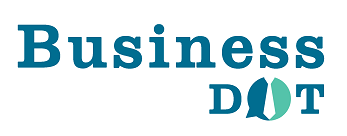
With the rising network security risks, it is crucial to protect your devices from being infected by viruses. Whether you are using the internet at home or office, you need to learn ways to prevent potential data breaches that can attack all the information stored on your PC. Besides, your mobile phone is just as vulnerable to such attacks as any other device. Therefore, we will provide you with all the details you must know about cyber security risks and ways to avoid them. Without further ado, let’s dive right in!
What Is a Cyber Security Risk?
The term ‘cyber security risk’ refers to the malicious attacks that are carried out to access or damage your data without your consent. Some of the most common cyber security attackers consist of terrorist groups, corporate spies, criminal organizations, disgruntled employees, and hacktivists. They may use your personal or company’s data to perform damaging actions by stealing confidential information that should stay protected at all times.
Common Cyber Security Risks and Ways to Avoid Them
There are various security threats over the internet; hence, you should keep an eye on programs and files that can potentially damage your data.
We have compiled information regarding the most common cyber security attacks and ways to overcome them:
Password Theft
One of the most common issues with cyber security includes password theft. It refers to a situation where you keep trying to log into your account but fail to get access because a third party has stolen your password. This can happen to a user’s email account or even PC, resulting in the loss of sensitive data stored on the device or an online platform.
To resolve this issue, you should change your existing password and add alphanumeric letters to make it stronger. This way, it can be difficult for intruders to guess your password. Avoid using obvious words and numbers, such as your first or last name or your date of birth. Instead, add 1-2 symbols so that nobody could succeed at tracking your password. Another way to avoid such problems is to enable two-factor authentication. This method is proven to secure your accounts against potential hackers, as it requires you to verify your identity even after you have entered your password.
Malware
The term ‘malware’ refers to malicious software that can attack your data. It may include ransomware, worms, viruses, and even spyware. The worst thing about malware is that it comes as a link or an attachment that consists of malicious software, which may end up installing other dangerous software on your device. In addition, it may deny access to certain files or programs, steal your personal information, replicate itself to other devices, and even delete your data from your system.
The best way to defend your devices and accounts against malware is to download anti-malware software. Apart from that, you need to understand the difference between reliable and suspicious websites, files, or links so you could avoid viewing them on your device. To prevent the risk of malware attack, use both, anti-malware programs and your instincts to detect malware before it takes over your data.
Moreover, it is always a good idea to get in touch with Spectrum Servicio al cliente for a safer browsing experience.
Viruses and Worms
Another type of malicious programs that can attack your data includes viruses and worms. They are usually spreading through networks and computers for getting unauthorized access to your personal or confidential information. In addition, it may corrupt your files and steal your company’s data. On the other hand, worms are known to damage your device’s memory and even network bandwidth, which can impact your entire network’s performance and security.
To prevent the risk of viruses and worms, first, you need to be vigilant while downloading files from the internet. Avoid downloading from unknown sites and always check the format of the file being downloaded on your device. For example, if you were downloading an image or a video but the file is saving in ‘.exe’ format, then you should immediately cancel the downloading process. This is because such formats are widely being used to spread Trojan viruses from one device to another.
Alternatively, we recommend you check out Spectrum Billing to get an idea if you are getting a secure internet connection at competitive rates.
Final Thoughts
From personal to professional email accounts, multi-factor authentication should be activated to avoid intruders from accessing your information without your consent. Apart from that, you should consider scanning each downloaded file to ensure that it does not contain any malware or other malicious programs. Apart from that, you need to learn different ways to keep yourself secure while browsing or downloading on the internet. Find out the details of the three most common types of cyber security risks listed above and follow our suggestions to prevent them from accessing your data.

